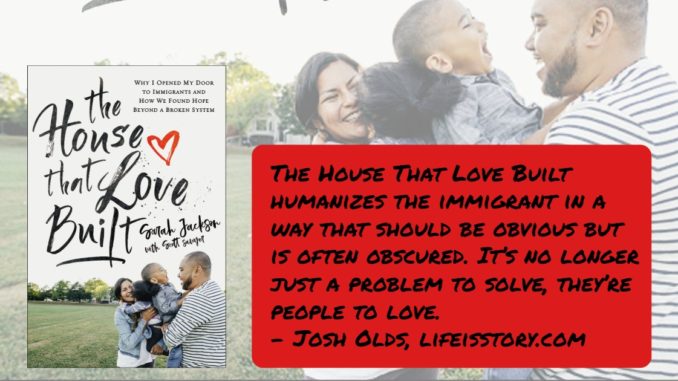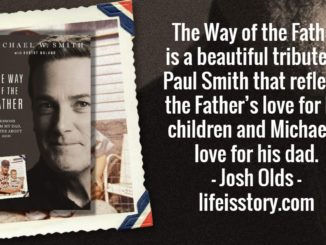
Published by Zondervan on July 14, 2020
Genres: Non-Fiction, Christian Life, Memoir, Politics, Racial Reconciliation
Buy on Amazon
Goodreads

Sarah Jackson once thought immigration justice was administered through higher walls and longer fences. Then she met an immigrant--a deported young father separated from his US-citizen family--and everything changed. As Sarah began to know fractured families ravaged by threats in their homeland and further traumatized in US detention, biblical justice took on a new meaning.
As Sarah opened her heart--and her home--to immigrants, she experienced a surprising transformation and the gift of extraordinary community. The work she began through the ministry of Casa de Paz joined the centuries-old Christian tradition of hospitality, shining a holy light on what it means to love our neighbor.
The dilemma of undocumented people continues to hover over America, and it raises urgent questions for every Christian:What is our responsibility to the "stranger" in our midst? What does God's kingdom look like in the global-political reality of immigration? What difference can one person make? Sarah engages these questions through profound and tender stories, placing readers in the shoes of individuals on every side of the issue--asylum seekers torn from their families, the guards who oversee them, ordinary people with lapsed visas, the families left to survive on their own, the unheralded advocates for immigrants' rights, and the government officials who decide the fates of others.
Ultimately, Sarah's journey illuminates how hope can be restored through simple yet radical acts of love.
My first interaction with the refugee crisis came in Tulsa, Oklahoma, where our local jail was being used as an ICE detention facility. Over a dozen asylees were released near midnight with only their clothes and papers. Some needed a place to stay for the night. Others needed a ride to the airport. All of them needed food and a kind face. So with a 2 year old and an infant in tow, my wife and I drove out to the jail to see how we could help.
I spoke with Carlos (names have been changed) as he chowed down on a protein bar. I lost fifty pounds in there. This is the first sweet thing I’ve had to eat in three months. I ended up giving him my belt. I helped Yi call her immigration lawyer and was rewarded with a handmade origami chain she had made while in detention. It’s still one of my most treasured possessions. We drove Jose and Martine to the airport, showed them how to check in to their flight, and wrote a note in English explaining their situation for them to give an attendant should they need other assistance. It was an exhausting and rewarding night. Soon after, the jail changed its policy on allowing ICE to use its facilities.
The House That Love Built convinced me of what I already knew: that the people I met that evening did not deserve this type of treatment, that they were people to be loved and not feared, that they had much to offer this nation. My experience pales in comparison to Sarah Jackson’s, but every experience she tells is exactly like mine. Where are the scary dudes? The drug dealers? The “not their best people” that we’d been warned about? Not here in Tulsa. And not in Denver, either.
Sarah Jackson’s journey toward immigration justice began when she met an immigrant—a young father separated from his US citizen family for the crime of not being born in the US. (And this was in 2010, long before the cries of “family separation” had been heard in the mainstream media.) Sarah’s journey took her life in a new direction—not just a complete 180 in how she thought of immigration justice, but in how she would respond to it. The result was Casa de Paz, a hospitality home right outside Colorado’s largest detention center.
When the detained are set free, they go to Casa de Paz—the house of peace. Using her personal story and the intertwined stories of immigrants from every continent, Jackson shares a side of immigration that evangelical Christians too often ignore. She calls us to do more, to show love and empathy, to change unjust laws, and—above all—to restore hope through radical acts of love. The House That Love Built is a story of loving the stranger and everything it entails. The messiness and the joy. The heartache and the happiness. It is a call for Christians to sit up and take notice of the “other” and truly follow Jesus’s path of radical hospitality.
Unfortunately, in this era, such an assertion—that the “undocumented” should be welcomed and loved—is seen as inherently partisan. The House That Love Built is clear that the problems with immigration transcend political party and that both Republicans and Democrats are to blame. But she does this with a grace that simply states the facts and allows the reader to make their own conclusion.
The House That Love Built is engaging and conversational. Other books that I’ve read on this issue have focused on the theology or the ethics or just the simple facts. And this book has all of those. But it’s the stories—Jackson’s personal stories and the stories she runs across—that make this book so incredible. The House That Love Built humanizes the immigrant in a way that should be obvious but it is often obscured. It’s no longer just a problem to solve or criminals or a danger to be dealt with, they’re people to love. This book gives me hope. Not hope that the system will change—though I pray for that—but hope that we can work from beyond the system to bring about change and show the love of Jesus.



